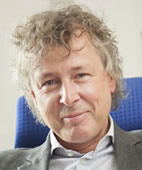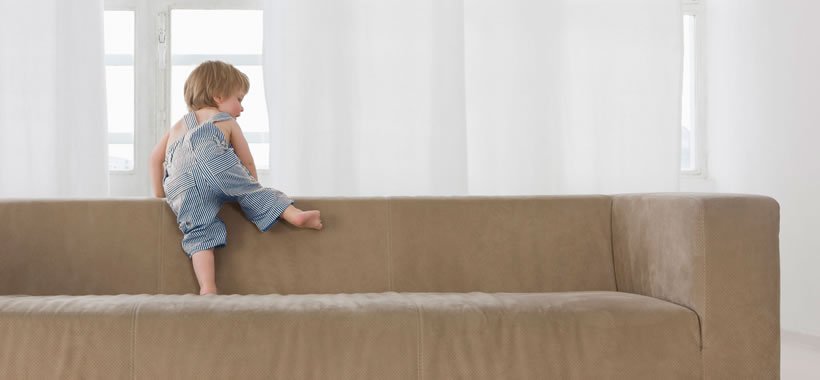Research shows: More and more children suffer from headaches. What prevents, which medications help and when parents have to go to the doctor with the little one

Even in primary school, children complain of headaches
There is a buzzing, hammering and throbbing in the heads of German children. Two out of ten are affected before they start school, and half have had a headache by the end of primary school. More and more children have to go to the doctor for a headache. Most suffer from tension headaches, but migraines are also increasing.
That’s where it comes from
External triggers can be noise, bad air, bright light, or heat. Typical inner factors are stress, fears or worries. Physical stimuli such as lack of sleep, overexertion, incorrect posture and lack of fluids often trigger headaches.

Where does it hurt?
The head is tight, there is pressure on the temples and the back of the head, doctors speak of tension headache, the most common form of headache. If the child complains regularly, Dr. advises Thomas Kauth, pediatrician from Ludwigsburg, to keep a headache calendar.
"Parents get it from the pediatrician. Based on the recordings, he recognizes relationships and can help the patient appropriately", he says. Headache diaries are also available On-line to download.
This helps and prevents headaches
- ensure calm and give attention
- place a cool towel on your forehead
- Massage your temples, crown and neck gently – with peppermint oil, for example, but it is only suitable from the age of six
- do targeted relaxation exercises
- drink a lot
- Switch off TV, computer, cell phone
- Get some fresh air
When with a headache to the doctor?
- The child has a flu infection. The headache gets worse, for example when coughing it hurts especially behind the forehead or cheekbones. This suggests inflammation of the frontal or maxillary sinuses.
- Sudden onset of a severe headache with fever, severe neck pain and sensitivity to light and noise – they are alarm signals for possible meningitis.
- Severe, constantly worsening headache and discomfort that lasts longer than three days.
- Headache associated with dizziness or visual disturbances. A disease of the nervous system must be excluded here.
- Headache after a violent fall, blow, or bump on the head. In this case, there may be a concussion.
- At least one parent has migraines? Then the child could also be affected by the disease. Regularly recurring headaches, which in pronounced cases are also accompanied by nausea and vomiting, indicate this.
Gentle headache strategies
Darkness
If everything becomes too much for the head, it needs a break. Therefore, as few stimuli as possible: no noise, no light, no stimulating activities.
Nachschlafen
If the body is awakened from deep sleep, it sometimes reacts with a headache. Because the brain cannot process the stimuli of waking up so quickly: the head is buzzing. Then it helps to lie down for 30 to 60 minutes (no longer!), After which the pain is usually gone.
Laugh
Double relaxing: It is not only the muscles that relax when you laugh heartily a few times. The mood also brightens and negative stress no longer has a chance.
Cool
A cold washcloth on the forehead ensures that the vessels contract and the Head hurts less.
Essential oils
Diluted peppermint oil helps after a few minutes. Simply massage a few drops onto the painful area with your fingers. Only suitable from the age of six.

The doctor prescribes this
The headache does not subside after an hour, may one Children’s pain relievers (ibuprofen or paracetamol), dosed according to age, are administered. Headache medications with the active ingredient acetylsalicylic acid are absolutely taboo! "These drugs are not suitable for children and adolescents up to 16 years", says Elke Wanie, pharmacist in Bad Aibling.
Migraine attacks, however, are treated early with medication. The pediatrician prescribes ibuprofen or paracetamol if it is mild. For severe cases there are special agents (from 12 years) in the form of nasal sprays or as a syringe.
RELATED ITEMS
-

Migrate in children: what helps against it – baby and family
Children also suffer from migraine attacks: stress can trigger headaches. How parents can help their little ones This video explains…
-

This helps against ear pain in children – baby and family
They can feel like pinpricks or like a pulsating strong pressure: earache. What triggers them and how parents relieve pain…
-

Diarrhea: this helps your child – baby and family
The younger the child, the more dangerous diarrhea can be. Pharmacist Ralf Schlenger explains what acutely and preventively helps toddlers with diarrhea: what…
-

Concussion in children: what to do? Baby and family
Children fall quickly – and often upside down. How parents recognize a concussion and act correctly Caution! A fall on the head can…
